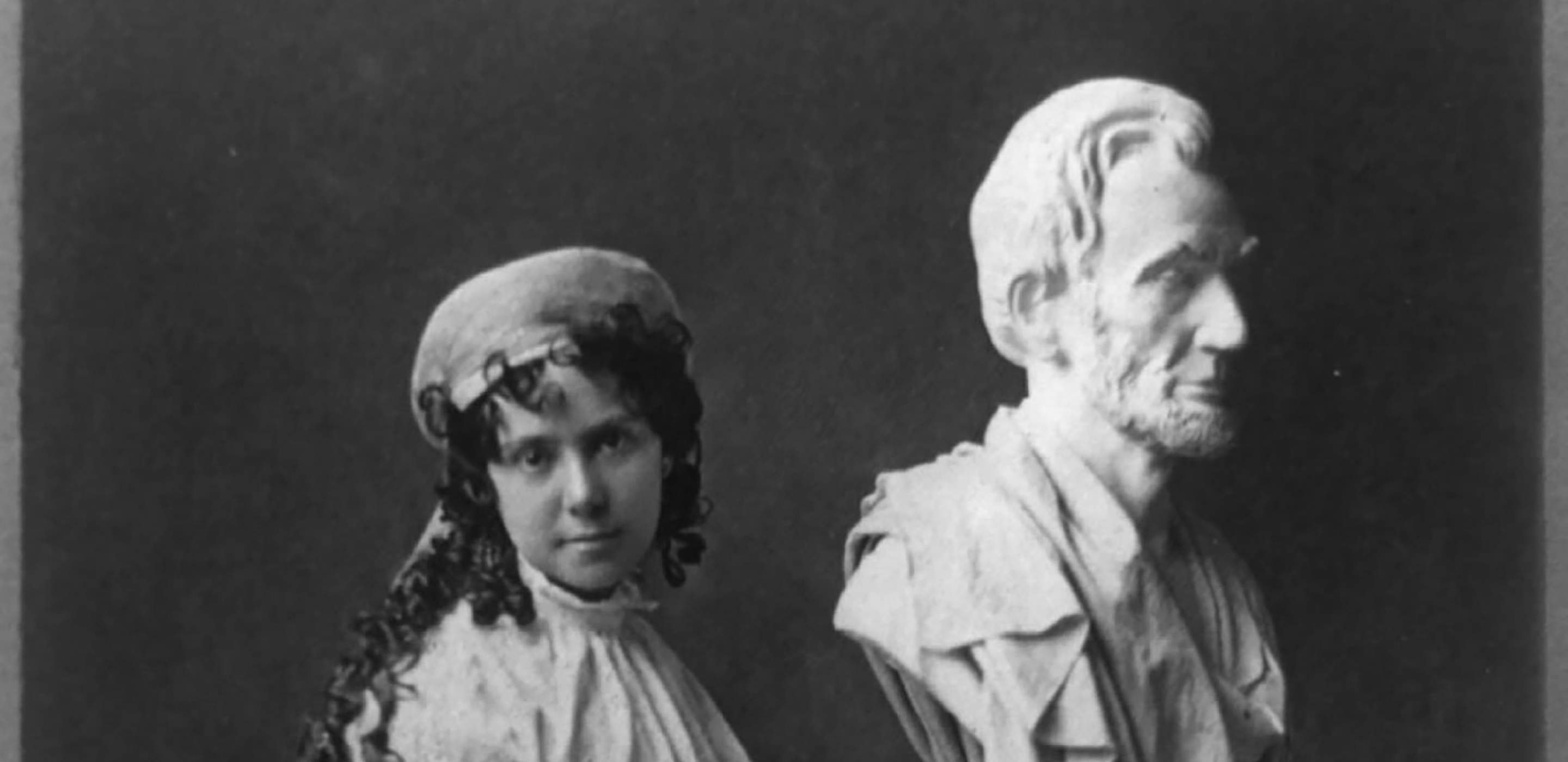
History to Herstory: Lincoln’s Legacy Has Inspired Women Through Time
Like many of the employees at Ford’s Theatre, I love delving deep into history. One thing that makes learning about Lincoln so rewarding is to see the ripple effects of his character and place in popular memory. In the past, we have shared why our staff and fans value Lincoln’s honesty and leadership. Here are three examples of women across the centuries who were inspired by Lincoln.

1860s: Vinnie Ream
In our Aftermath Exhibits, alongside the story of the Lincoln monument and other memorials to Lincoln, you can see a photo of Vinnie Ream. Lincoln’s generosity helped Ream become both the first woman and the then-youngest person ever to receive a federal art commission. As a teenager, Ream’s family moved to Washington City (now Washington, D.C.) where she helped to support her ill father, who could work only part-time. She had always dreamed of becoming a sculptor, and she sought employment under famous sculptor Clark Mills. Through a friendship with Congressman James S. Rollins, Ream gained Lincoln’s permission to sculpt the President. She later said, “[Lincoln] had been painted and modeled before, but when he learned that I was poor, he granted me the sittings for no other purpose than that I was a poor girl.”

In late 1864 and 1865, Vinnie Ream visited Abraham Lincoln for a half-hour each day, over the course of five months, to work on her model. After Lincoln’s assassination at Ford’s Theatre, Ream entered a Congressional search for a sculptor to create a statue of the late president. Senator Jacob Howard spoke against her in a debate of the Senate floor, specifically because of her gender. He claimed that as a woman she would be “a complete failure in the execution of this work.”
Nonetheless, Ream was awarded the commission, at the age of 18. Her sculpture of Abraham Lincoln stands in the rotunda of the United States Capitol today.
1910s: Washington State Suffragists
Here at Ford’s, we often consider the effect of Lincoln’s legacy. Many people try to lay claim to Lincoln’s strong leadership principles and ideals. Here is one way his legacy influenced women in ways he never could have predicted.
In 1910, Washington state voted in favor of women’s suffrage, a decade before the ratification of the 19th Amendment, which guaranteed it nationally. It’s possible that Abraham Lincoln’s words influenced the vote!
A poster declaring “Lincoln said women should vote” was printed as a supplement to Votes for Women magazine, edited by suffragist Missouri T. B. Hanna in Seattle. The poster includes the quote, “I go for all sharing the privileges of government who assist in bearing its burdens, by no means excluding women.” The poster was distributed as propaganda advocating for Washington state residents to heed Lincoln’s advice and allow women the vote.

It’s unclear whether Lincoln intended the quote to advocate for women’s suffrage. The original quote read, “I go for admitting all whites to the right of suffrage, who pay taxes or bear arms, (by no means excluding females.)” Lincoln biographer David Herbert Donald calls this a “tongue-in-cheek joke,” since women were not allowed to join the militia and bear arms.
Regardless of Lincoln’s original intention, the invocation may have helped suffragists win the right to vote.
2000s: Suzan-Lori Parks
Lincoln’s tragic assassination gave playwright Suzan-Lori Parks a vocabulary with which to discuss the inherent challenges involved in living as an impoverished African-American man.
In 2002, Parks became the first African-American woman to win the Pulitzer Prize for Drama for her play Topdog/Underdog, which premiered on Broadway the same year. The play tells the story of two brothers, named Lincoln and Booth, who struggle as adults, shaped by their parents abandoning them as children. In her play, the character of Lincoln holds a job as an Abraham Lincoln impersonator, while Booth gambles to earn his living.
Like their namesakes, the brothers find conflict in their opposing views of the world. By invoking Lincoln’s and Booth’s names, Parks demands audiences consider how Lincoln’s legacy—and his tragic passing—shaped the African-American experience long before her characters were born.
Sara Cohen is Marketing and Social Media Manager at Ford’s Theatre, where she is proud to share Lincoln’s legacy with the world. Follow her on Twitter at @SaraECohen.

